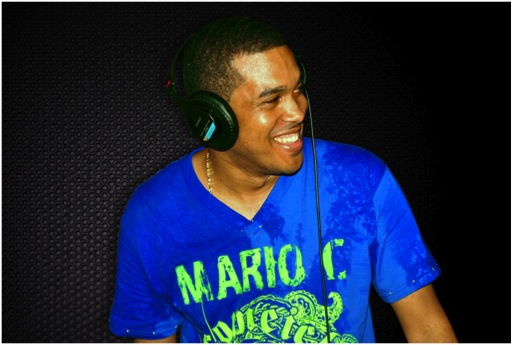Mario C is one of Jamaica’s top dancehall producers – winning the EME Award for Dancehall Producer of the Year and well known for his collaborations – from Beenie Man to Lady Saw. But now he has a new project – trying to bring one of his passions, house music, to Jamaica. It’s not an easy task, as he admits, but Mario C has a unique strategy that fuses dancehall and house music into a form that he hopes will not just bring acceptance for house music, but push the creativity of the dancehall genre. To learn more, CJ Arts talked to Mario C about house music, improving dancehall and the upcoming album, which is set to debut in April.
How did you decide to make a house music album?
House music has been a love of mine for a very long time – from school age. In the 90s, it was most of the clubs on South Beach, so I just fell in love with it, how people interacted with what they heard. When it came to Jamaica it wasn’t a genre – they were still listening to dancehall and reggae. Because, I would say, of the success of Daft Punk and a few other major house DJs, they became more accepting of it. But it’s not here yet – it’s not at a point where we could go out and play it all night. So I thought if you fused it with dancehall music, it would be more enticing for them to listen to it. So the idea really came from developing and getting Caribbean people to get into house music – and also to push dancehall music, because now, dancehall is in a bit of a slump. I don’t know what caused it, but record sales are down, US acceptance is down, international acceptance is down. So maybe it will energize back our genre by fusing it with something new that’s popular, and gradually come back into dancehall.
What is the biggest challenge with this project?
The first challenge would be to get the international support – right away, we know that the DJs are not going to readily accept it — because that’s not what they’re accustomed to. So finding avenues to break it – it’s not far off, it’s just unfamiliar – that’s the problem. We’re working on it – we have some of the songs in electronic record groups, so I’m confident that we will get there – but it won’t be overnight.
Who are your inspirations?
I guess like Bob Sinclair, who is a very famous DJ. What he used to do was voice Caribbean artists on his beats. His beats are predominantly house beats – they’re not the beats that I’m doing – my beats are more like leaning toward dancehall. So it’s sort of like dancehall sped up – but it’s not house-house, because if I go too far into house, I’ll lose the Jamaican people. So Bob Sinclair – he’s the only person that really tried to do something like that – but it wasn’t just him. We have a lot of good singers and artists in Jamaica. So he uses the resources we have to help this project – so there are house beats.
It’s hardly something that you can hear and not give a response to it. It’s not a laid-back kind of music, it’s high-energy stuff.”
What do you enjoy about house music?
It’s off tempo, so each time you want to dance. It starts off light and just continues – it’s hardly something that you can hear and not give a response to it. It’s not a laid-back kind of music, it’s high-energy stuff.
You mentioned dancehall’s slump. What will it take to strengthen it?
It’s going to take some creativity, maybe more ideas like what I’m putting forth, and also money. We need the major labels and some of the bigger independents to help out, to help with marketing and support. I think a lack of funding is the biggest deal.
What do you envision for this music in Jamaica?
Well, so far it’s going better than I expected – so I wouldn’t stop it. I think this could be something that Jamaica has a footprint on. I think Jamaican music influenced a lot of artists around us, including hip-hop. We are very influential in hip-hop. We have influenced how the rest of the Caribbean do their music – from soca to reggaeton – that’s all coming from Jamaica. Reggaeton is Jamaican, it’s just that it’s Jamaican music and Jamaican beats but has Latin artists on it. So I think this is just another genre out of Jamaica. I don’t see it dying out – I see it as one more genre that we have created that the world will accept.
